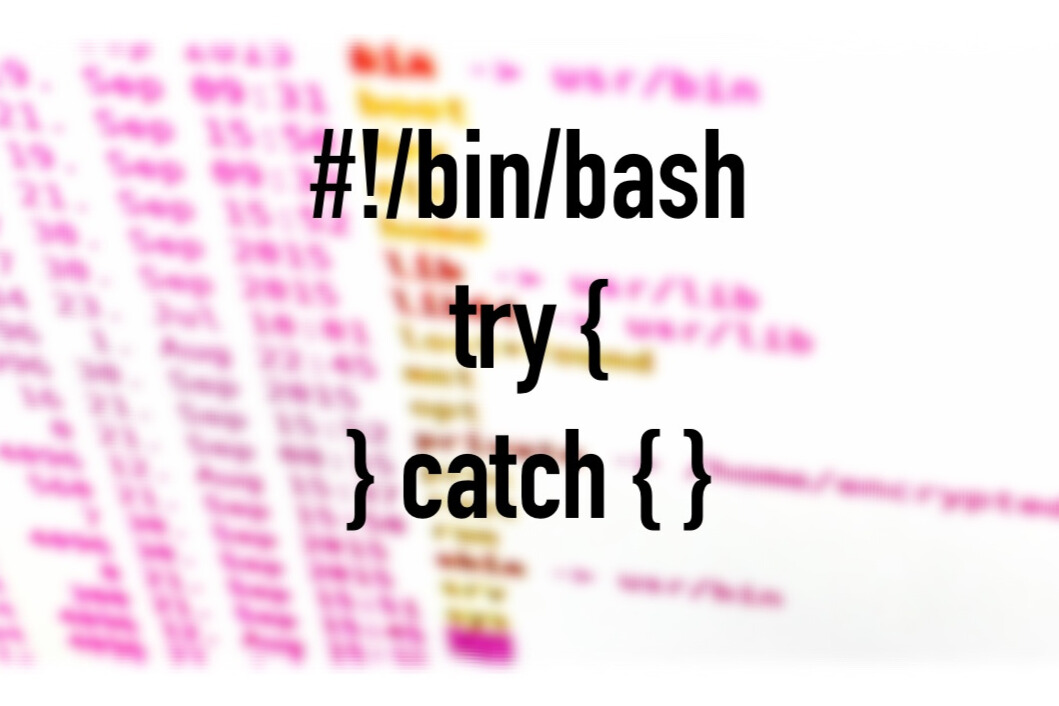A Tiny Try-Catch Equivalent in Bash
While writing bash scripts, you might have found yourself wishing for a try-catch construct to handle errors gracefully. While bash does not have a built-in try-catch mechanism, we can create a simple workaround using functions.
In this blog post, I propose a tiny try-catch equivalent in bash that allows you to handle errors and exceptions in your scripts.
The problem
Bash scripting lacks a native try-catch construct, making error handling a bit challenging. When an error occurs, the script typically terminates abruptly. By implementing our own try-catch mechanism, we can gracefully handle errors, and what’s more important, perform specific actions based on the error type.
The solution
As a solution we define a checkrun function, which acts as our try-catch block. This function accepts an exit code and an error message as parameters. If the exit code is non-zero, indicating an error, the function prints the error message and exits the script with a non-zero status code.
To demonstrate the concept, let’s take a look at the following example:
function checkrun {
if [ $1 -ne 0 ]; then
echo "$2"
# catch code goes here
exit 2
fi
}
function test1 {
echo "test1" && \
echo "print 2"
return 1
}
function test2 {
echo "test2"
}
test1 && test2
checkrun $? 'Something went wrong...'
In the above code snippet, we have two test functions, test1 and test2. Inside test1, we intentionally introduce an error using the return 1 statement. We then call both functions and use checkrun to handle any errors that occurred during their execution and quit the script gracefully.
I hope it helps. Thanks for reading.
